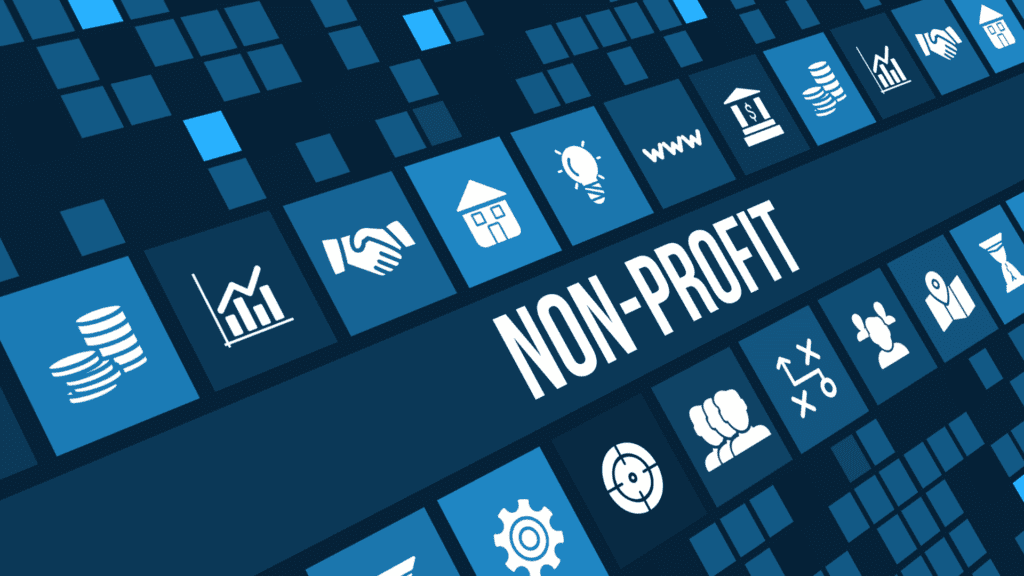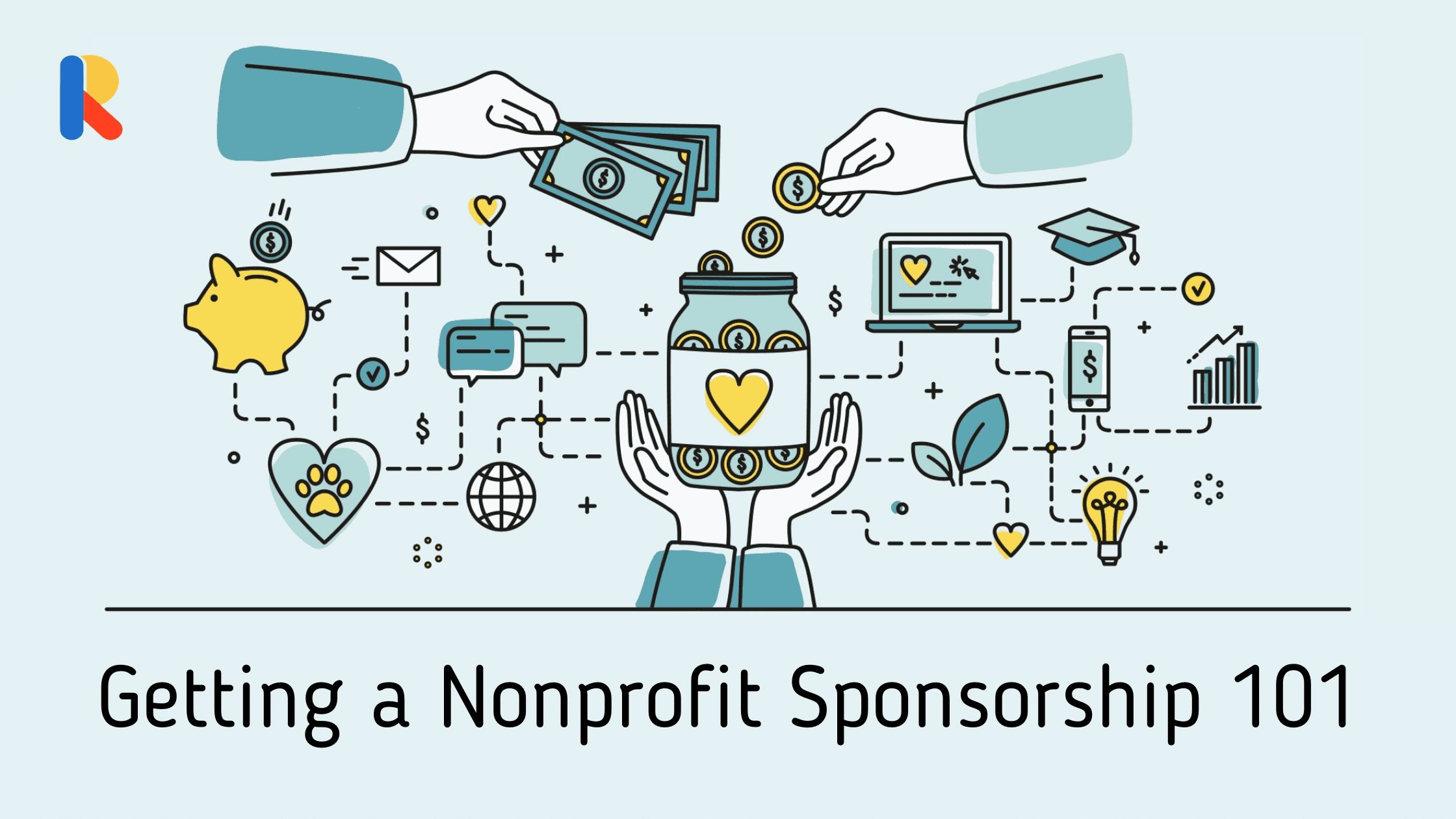If you’re running a nonprofit, you know how challenging it can be to manage day-to-day operations, engage with donors and volunteers, and achieve your mission. That’s where our ultimate guide to nonprofit management can help. In this comprehensive guide, you can find everything you need to know about nonprofit management, from the basics of nonprofit accounting to the latest fundraising strategies and volunteer management tools.
What is Nonprofit Management?
The non-profit organization is a field that revolves around managing and leading organizations that are driven by a social or environmental cause, rather than making profits. It’s all about harnessing the power of passion and purpose to create a positive impact on the world. In a nutshell, nonprofit management, sponsorship and leadership involve the planning, organizing, and coordinating of activities to achieve the mission of an organization.
To be able to successfully working for a non-profit organizations, you need to have a solid understanding of the unique challenges and opportunities that come with running a mission-driven organization. You’ll need to be able to work effectively with a range of stakeholders, from volunteers and donors to board members and government officials. You’ll also need to be adept at fundraising, marketing, and strategic planning, as well as managing finances and human resources. But most importantly, you’ll need to have a deep commitment to the cause and be able to inspire and motivate others to join you on the journey.
Why is Nonprofit Management Important?
Non profit development plays a vital role in our society because it helps to address the most pressing social and environmental challenges facing our communities. Without nonprofit organizations, many people and causes would be left unsupported, and crucial services and initiatives would be neglected. Nonprofits provide everything from healthcare and education to environmental protection and human rights advocacy, and nonprofit managers are responsible for ensuring that these critical services are delivered effectively and efficiently. Good nonprofit management helps to ensure that organizations can effectively carry out their mission and serve their beneficiaries. Here are some reasons why nonprofit management is so important:
Financial Management:
Nonprofit managers must be good financial managers to ensure that the organization’s resources are used effectively and efficiently. They must manage budgets, monitor expenditures, and ensure that funds are used to achieve the organization’s mission.
Strategic Planning:
Nonprofit managers should develop and implement strategic plans that support the organization’s mission and goals. They should be able to identify opportunities for growth and development and develop strategies to capitalize on these opportunities.
Stakeholder Engagement:
Nonprofit managers should engage with stakeholders, including donors, volunteers, and beneficiaries, to ensure that the organization is meeting their needs and expectations. This includes developing strong relationships with stakeholders, responding to feedback, and communicating effectively with them.
Programme Implementation:
Nonprofit managers should ensure that the organization’s programs and services are implemented effectively and efficiently. This includes managing staff and volunteers, ensuring that they are properly trained and equipped to carry out their tasks, and monitoring program outcomes to ensure that they are achieving the organization’s goals.
In general, good management is essential for the success of your nonprofit organization. A good nonprofit manager should possess a wide range of skills, including financial management, strategic planning, stakeholder engagement, and program implementation. By managing these responsibilities effectively, nonprofit managers can help their organizations achieve their mission and make a positive impact in their communities.
What Does a Nonprofit Manager Do?
Nonprofit organization managers have a multifaceted role that includes a wide range of responsibilities and tasks. At a high level, they are responsible for overseeing the day-to-day operations of the organization and ensuring that it is aligned with its mission and values. This involves managing staff and volunteers, developing and implementing strategic plans, and monitoring the financial health of the organization. Here are some of the key responsibilities of a nonprofit manager:
Planning and Budgeting:
Your nonprofit managers are responsible for creating and implementing strategic plans that support the mission of the organization. This includes developing budgets, setting goals and objectives, and identifying opportunities for growth and improvement. For information about nonprofit salary and all duties undertaken, you can contact Raklet.
Staff and Volunteer Management:
Nonprofit managers must manage a team of staff and volunteers, ensuring that they are properly trained and equipped to perform their duties. They are responsible for hiring and firing staff, conducting performance evaluations, and creating a positive work environment.
Fundraising and Development:
Nonprofit managers play an important role in fundraising and development efforts by working closely with donors, nonprofit sponsorship, and other stakeholders to raise funds for the organization. They can also develop and implement fundraising campaigns and events to raise money for the organization.
Community Outreach:
Nonprofit managers are often the public face of the organization, representing the organization in the community and building relationships with key stakeholders. They may also be responsible for developing partnerships and collaborations with other organizations to achieve common goals.
Overall, nonprofit managers play a critical role in ensuring the success of nonprofit organizations. They must possess a broad range of skills, including strategic planning, budgeting, staff and volunteer management, fundraising and development, and community outreach. By non-profit management skills these responsibilities effectively, nonprofit managers can help their organizations achieve their mission and make a positive impact in their communities.
Why Should You Use Nonprofit Management Software?
Nonprofit organization management faces a unique set of challenges when it comes to managing operations, engaging donors, and achieving their mission. That’s why nonprofit management platform has become an essential tool for many organizations. Here are some of the top reasons why you should consider using nonprofit management software for your organization:
Streamlined Operations:
Nonprofit management software can help you streamline your day-to-day operations, freeing up more time and resources to focus on your core mission. With features such as donor management, volunteer scheduling, event planning, and fundraising tools, you can manage all aspects of your nonprofit from one central platform.
Increased Efficiency:
Nonprofit management software can help you increase efficiency and productivity by automating manual processes and reducing the need for paper-based systems. This means you can accomplish more in less time and with fewer resources, allowing you to make a greater impact on your nonprofit.
Improved Donor Engagement:
Donors are the lifeblood of every nonprofit organization and it is crucial to keep them informed and engaged in your organization’s work. Non-profit development management software can help you communicate more effectively with donors and provide them with personalized updates, donation receipts, and other forms of outreach that keep them committed to your mission.
Better Fundraising:
Fundraising is a critical component of every nonprofit organization, and it’s important to have the right tools to help you raise more funds. Nonprofit management software can provide you with online donation forms, peer-to-peer fundraising tools, and other features that make it easy to raise money from your supporters. With the right software, you can increase donations, track your fundraising progress, and develop effective fundraising strategies.
Overall, nonprofit management software can be a game-changer for organizations looking to streamline operations, increase efficiency, and more effectively carry out their mission. Whether you are a small grassroots organization or a large national nonprofit, the right software can help you take your organization to the next level.
What Kind of Nonprofit Management System is Right for You?
Choosing the right nonprofit management system can be a daunting task, but it’s essential to find a solution that meets your organization’s unique needs and budget. There are many types of nonprofit management systems available, ranging from simple donor management tools to comprehensive platforms that include fundraising, volunteer management, event planning, and more. The key is to assess your organization’s requirements and identify the features that are most critical to your success.
If you are a small organization with limited resources, you may want to consider a cloud-based donor management system that can help you track donations and communicate with donors. These systems are usually affordable and easy to use, making them a great option for organizations just starting out. If you are a larger organization with more complex needs, you may want to look for a comprehensive nonprofit management platform that includes features such as fundraising, volunteer management and event planning. These systems may be more expensive, but they can also help you streamline operations and achieve your mission more efficiently. In some cases, companies may sponsorship for non-profit organizations.
What are the top 5 Benefits of a Nonprofit Management System?
Non-profit management systems have revolutionized the way the best practices for non-profit operate by providing a centralized platform to manage all aspects of their operations. Here are the top five benefits of a nonprofit management system:
Improved Efficiency:
With a nonprofit management system, you can automate many routine tasks, such as donation tracking, volunteer management, and event planning. This allows your staff to focus on more important tasks, such as fundraising and mission-critical activities.
Advanced Donor Management:
A non-profit management system can help you keep track of your donors, they’re giving history and preferences. In this way, you can personalize your communications and build stronger relationships with your supporters.
Better Financial Management:
A non-profit management system can help you manage your finances more effectively by tracking donations, spending, and budgeting. This allows you to make informed decisions and optimize your budget to achieve your mission. If you are a growing non-profit organization you may want to learn about sponsorships.
Streamlined Event Planning:
A nonprofit management system can help you plan and execute successful events, from fundraisers to volunteer events. It can help you manage event registration, ticketing, and communications, making it easier to engage your supporters and raise funds.
Improved Reporting and Analytics:
A nonprofit management system can provide valuable insights into your organization’s performance, such as donor retention rates, fundraising trends, and volunteer engagement. This can help you make data-driven decisions and optimize your operations for maximum impact. Overall, a nonprofit management system can help you fulfill your mission more efficiently and effectively while building stronger relationships with your supporters and stakeholders. It is possible to create a free account on Raklet’s nonprofit organization management platform for your nonprofit management platform needs. With a comprehensive platform, you can contribute to the development of your non-profit organization.
How Much Does Online Nonprofit Management System Cost?
The cost of an online nonprofit management system can vary widely depending on the features, functionality, and size of your organization. Generally, there are two main pricing models for nonprofit management systems: subscription-based and per-user based. Subscription-based models typically charge a monthly or annual fee, while per-user models charge a fee per user per month or year. Some systems also offer a one-time licensing fee or a percentage of the funds raised through the platform. Check out free fundraising thermometer for nonprofit for free ways to use a fundraising-focused visual tracking tool that shows your campaign’s donation progress.
When considering the cost of a nonprofit management system, it’s essential to evaluate the features and functionality that you need. A basic system for tracking donations and managing volunteers may cost as little as $50 per month, while a more comprehensive platform with fundraising, event management, and marketing features may cost several thousand dollars per year. However, it’s important to remember that the cost of the system may be offset by savings in staff time, improved efficiency, and increased fundraising revenue. For non-profit organizations, alternatives to PayPal may also be available for ease of payment.
What are the Features to Look for in Nonprofit Management Software?
When selecting nonprofit management software, it’s essential to consider the features that are most critical to your organization’s success. Here are some of the key features to look for:
Donor Management:
A good nonprofit management system should provide robust donor management capabilities, allowing you to track donations, communicate with donors, and segment your database based on various criteria.
Fundraising Tools:
The software should offer a variety of fundraising tools, such as online donation forms, peer-to-peer fundraising, recurring giving, and more. This will help you engage donors and raise more funds.
Volunteer Management:
If your organization relies on volunteers, you’ll want non-profit software with volunteer management tools, such as a volunteer portal, scheduling tools, and communication features.
Event Planning for Nonprofıt management :
The software should offer event planning and management capabilities, including event registration, ticketing, and communication tools.
Reporting and Analytics:
A good nonprofit management system should provide robust reporting and analytics capabilities, allowing you to track your fundraising progress, donor retention rates, volunteer engagement, and more.
Marketing and Communication:
The software should offer marketing and communication tools, such as email marketing, social media integration, and targeted communications to donors and volunteers.
Finding the best nonprofit software that aligns with your organization’s needs and goals is essential to achieving your mission. Say goodbye to spreadsheets and hello to streamlined operations with a nonprofit management system. Take the first step today and take your nonprofit to the next level.

Best Nonprofit Management System – Raklet
Raklet is a powerful tool for nonprofit management due to its versatile and user-friendly features. With Raklet, nonprofit organizations can easily manage their members, donations, events, and communication in one place. Raklet’s customizable dashboard allows organizations to track their progress and analyze their data, making it easier to make informed decisions.
One of the standout features of Raklet is its fundraising module, which provides nonprofits with a comprehensive suite of tools to manage their donations. This includes the ability to create donation pages, accept online payments, and track donor information. Additionally, Raklet’s event management tools make it easy to plan and execute events, with features such as ticketing, RSVP tracking, and attendee management. Overall, Raklet’s all-in-one platform streamlines nonprofit management, making it an excellent choice for organizations looking to maximize their impact.
It is free forever unless you decide to upgrade, and if you are interested in our paid plans, just schedule a demo call with us to hear our offers. We can’t wait to meet you and your organization!
To read more about nonprofit organizations and how to reach your utmost potential, check out our pillar content where we have created an ultimate guide. You can also check out our other nonprofit articles below:






